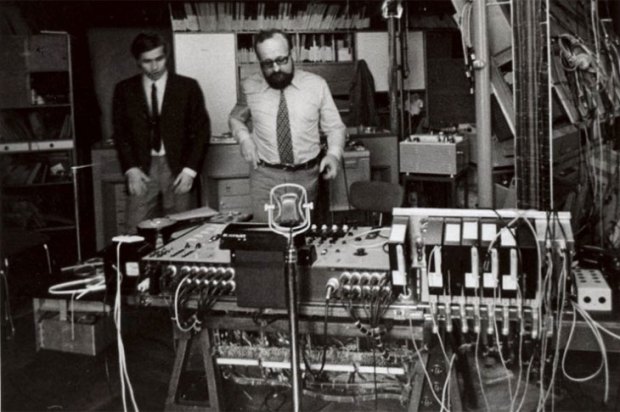What an incredible statement we heard on My Perfect Country. ‘I can walk into a boardroom and forget I am a woman,’ pronounced Isabelle Masozera, a PR executive, on the World Service programme, which this week visited Rwanda to find out what is happening there to make it qualify for ‘my perfect country’ status. Her words hit home because of the BBC’s current difficulties over equal pay and opportunities.
It appears that the corporation has been less than speedy or judicious in its response to the revelations last year about the substantial differences in earnings between some of its male and female employees. Badly handled, it led to the bizarre situation on Radio 4’s flagship Today programme on Monday morning when one of its presenters, Carrie Gracie, was also one of the top stories of the day.
She had just resigned from her job as the BBC’s bureau chief in China, claiming in a letter addressed to licence-payers, which was gleefully blazoned across several newspapers, that her erstwhile employer ‘is breaking equality law and resisting pressure for a fair and transparent pay structure’. Gracie couldn’t be interviewed by her co-presenter John Humphrys (who you could tell was itching to take on the task) because this would have broken the BBC’s strict rules on impartiality, although she was later heard on Woman’s Hour explaining her position. Does this muddle matter?
Yes. Because as a taxpayer-funded organisation the BBC is incredibly privileged as a broadcaster, free from commercial pressures. To respect that privilege it should ensure that it not only manages its finances with scrupulous integrity and transparency but also behaves as a model organisation, leading the way on equality of pay and opportunity between all employees. There are too many overpaid people at the Beeb (they must know who they are) and at the same time too many who would earn a lot more if they chose to move into the commercial world. A radical solution to the equal-pay dilemma would be to downgrade a lot of managers and celebrity presenters in favour of those who burn the midnight oil to deliver first-class programmes to deadline and on budget. Now that would truly lead the way in employer–employee relations.
But let’s get back to Rwanda and Ms Masozera. She went on to say, ‘I just pray that the world catches up with Rwanda.’ She’s in for a long wait. As Fi Glover, Martha Lane Fox, Professor Henrietta Moore and Dr Keetie Roelen sought to explain on My Perfect Country (produced by Eve Streeter), Rwanda is a special case. After the massacre of up to 800,000 people in 100 days during the civil war of 1994, men were in short supply. Women, who had suddenly become 70 per cent of the population, had to step in and do the work of men while bringing up their children single-handed. This generation grew up only knowing a world in which women are dominant, by force of circumstance. But the government response was also far-seeing, giving women formal rights in the constitution to land, to education as well as the right to equal pay. The key to women’s progress in Rwanda has been this awareness that it’s not just about money: at least 30 per cent of all decision-making jobs in the public sphere must be held by women.
It’s not all positive. The Rwandan correspondent Maggie Mutesi spoke to a young female student who complained that girls are still expected to marry as soon as they have finished school. For a woman to get a loan from the bank, it’s much easier if a man goes with her. Ask a man why he beat his wife and he will reply, ‘Because she went out without my permission.’ But the gender gap is closing in Rwanda and especially in regard to political and economic participation. We could learn something, agreed Glover, Lane Fox, Moore and Roelen.
Saturday afternoon’s drama on Radio 4, Offshore (directed by David Hunter), was an adaptation by Michael Butt of Penelope Fitzgerald’s shifting, haunting novel from 1979. Nenna is living on a barge on the Thames with her two children Martha and Tilda after leaving her husband (or did he leave her? It’s not entirely clear). The children befriend the other ‘waifs and strays’ of ‘the offshore brigade’ who have ended up on the riverside for reasons that are never clearly stated but which become apparent, usually through Martha and Tilda’s clear, unforgiving perceptions. Instead of going to school, they spend their time mudlarking, seeking out fragments of pottery, signs of life before their existence, the river’s constant motion another symbol of constant flux and change.
In just under an hour of airtime this could only be a slice of Fitzgerald’s book, but Butt’s adaptation captured her delicious sense of irony (Nenna’s address is Cheyne Walk, the most expensive in London, yet she’s living in poverty on a broken-down boat), her winsome style and nebulous plotting, her evocation of childhood and precise pinning-down of what makes us unhappy. Hattie Morahan, Molly Pipe and Rosie Boore excel as the three female leads and there’s a deliciously watery, slippery feel to the soundscape.
Got something to add? Join the discussion and comment below.
Get 10 issues for just $10
Subscribe to The Spectator Australia today for the next 10 magazine issues, plus full online access, for just $10.
You might disagree with half of it, but you’ll enjoy reading all of it. Try your first month for free, then just $2 a week for the remainder of your first year.














Comments
Don't miss out
Join the conversation with other Spectator Australia readers. Subscribe to leave a comment.
SUBSCRIBEAlready a subscriber? Log in